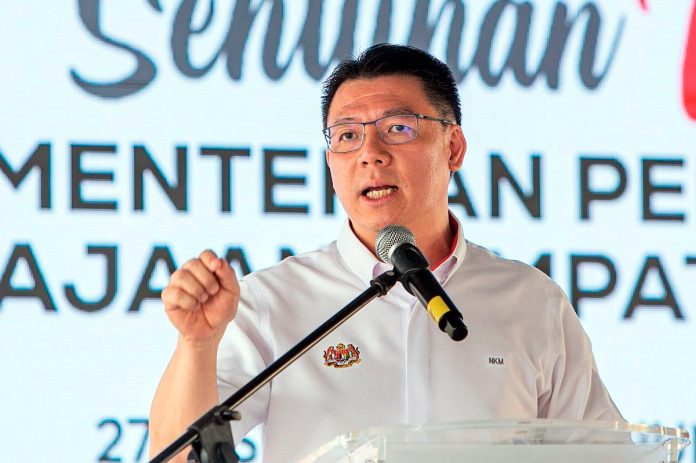PUTRAJAYA: Proposed urban renewal sites currently discussed by various parties have already been officially gazetted by state governments across Malaysia.
Housing and Local Government Minister Nga Kor Ming confirmed that opposition-led states including Terengganu and Kedah had previously approved these sites for development.
“These are facts, not proposals by the federal government. Kuala Lumpur has 139 sites, Kedah (55), Terengganu (22), Kelantan (four), Selangor (72), Johor (36), Pahang (58), Penang (five), Perak (85), Negeri Sembilan (49) and Melaka (nine), bringing the total to 534 sites,” he stated during a special press conference on the Urban Renewal Bill.
Nga highlighted the irony that those who originally approved these sites are now opposing them despite their previous involvement.
The new Urban Renewal Bill aims to provide better protection and improved housing conditions for residents, particularly those from the B40 group living in dilapidated properties.
“Currently, homes measure 500 square feet, with only one bedroom and one bathroom. Under PSB, the minimum will be 750 square feet, with three bedrooms and two bathrooms—one for the parents, one for the son, and one for the daughter. This is the humanitarian policy of the MADANI government,” he explained.
A fundamental principle of the Bill requires owner consent reaching an 80% threshold before any developer negotiations can commence.
Such negotiations will be managed by the State Executive Committee under the leadership of the Chief Minister or Menteri Besar before federal review.
“Small-scale owners do not negotiate directly with large developers. Ministers and the government act as mediators to help people secure better terms,” Nga emphasised.
Additional principles within the Bill include retaining original residents in their localities, ensuring fair compensation, providing adequate temporary housing, and implementing phased development.
The Minister explicitly stated that Malay reserved land, customary land, and heritage buildings are excluded from urban renewal initiatives.
Nga firmly rejected allegations that the legislation primarily benefits developers, stressing its community-focused objectives.
“I want to stress that the purpose of PSB is to benefit the people, not to bring wealth to the developers. Low-value homes will be replaced with higher-value ones…small units will be replaced with larger, more comfortable homes,” he affirmed.
The Bill’s second reading is scheduled for October 6 in the Dewan Rakyat, followed by a third reading incorporating amendments from parliamentary consultations.
“This government is one that listens. The amendments include raising the consent threshold from 75 to 80 per cent and adding provisions to ensure local demographics remain largely unchanged,” Nga noted.
If approved through both parliamentary houses, the Bill could become law by January 1, 2026. – Bernama








